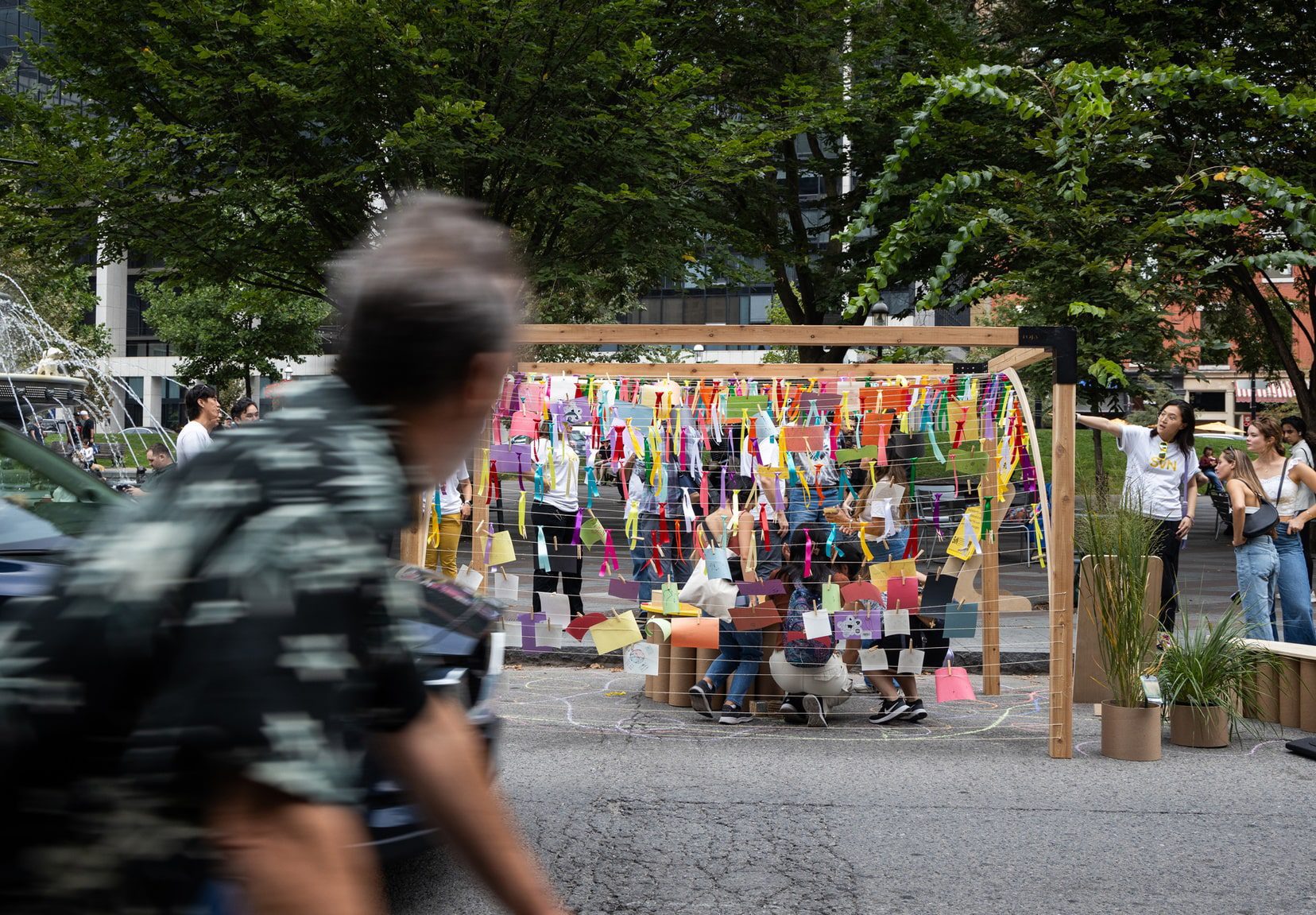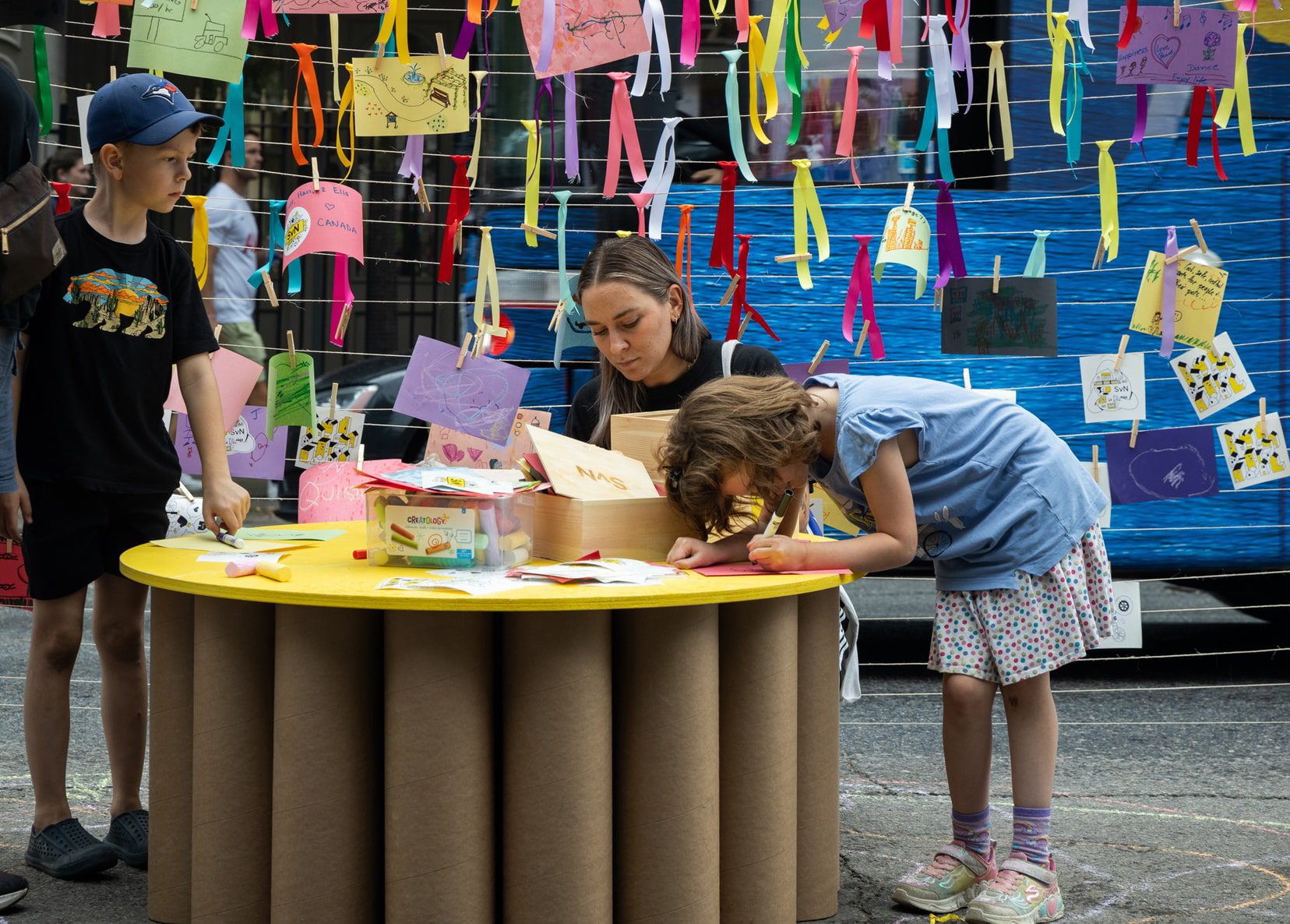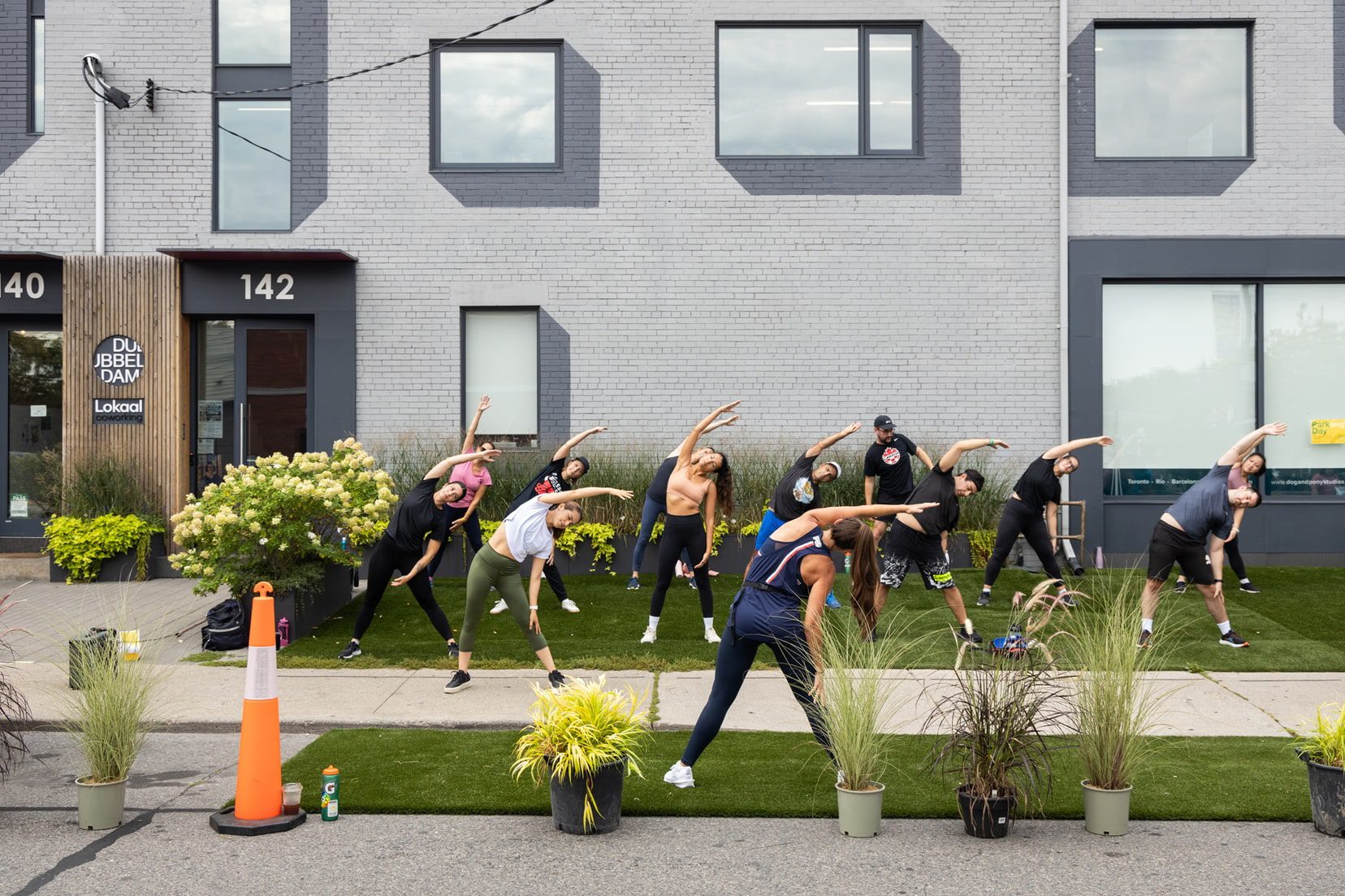Home /
This year, Toronto saw inspiring activations, thanks to a grant program spearheaded by Dubbeldam Architecture + Design in collaboration with SvN Architects + Planners, Arup Canada, DTAH, and MASSIVart. Over 30 installations—from pickling parkettes to bike-themed workshops—brought together citizens, artists, and urban planners to explore how urban design can prioritize people over cars. The question at the heart of this year’s event was clear: How can we rethink the way we use public spaces in our increasingly dense cities?

Left: TAKE A MINUTE Adam Sauriol/ Students from the John H. Daniels Faculty of Architecture – Right: PARK(ING) SPOT TMU Department of Architectural Science Students – Photos by Bruno Belli
Park(ing) Day is a powerful example of tactical urbanism, a design approach that uses temporary, low-cost interventions to demonstrate value and long-term change. By converting parking spots into people-friendly spaces, the event demonstrates how underutilized urban areas can be reimagined and repurposed to better serve and connect the community. These small-scale activations not only enliven the city but also inspire larger conversations about urban planning and policy.
In Toronto, where public space can be scarce in some areas, Park(ing) Day offers a glimpse into how we can creatively adapt the urban environment. As Heather Dubbeldam, Principal of Dubbeldam Architecture + Design, explains, “Park(ing) Day highlights the importance of prioritizing open, green spaces that foster community, rather than reserving these areas for cars. By transforming parking spots into temporary parks and social spaces, we hope to inspire larger conversations about how we can create more accessible, vibrant urban spaces.”

FIVE SPACES SvN Architects + Planners – Photo by Bruno Belli
Since its inception in 2005, Park(ing) Day has grown from a single initiative in San Francisco into a global event with cities participating worldwide. It has become a key example of design activism, where everyday citizens, designers, and planners work together to challenge the status quo of car dominance in cities.
Park(ing) Day’s utility as a tool for change lies in its simplicity and accessibility. Anyone can participate: you can claim a parking spot, pay for the meter, and transform it into a temporary park with just a few chairs, plants, or other fun elements. This grassroots approach lowers barriers to entry and empowers individuals and groups to engage directly with urban spaces, helping to spark dialogue about the future of city living.

FIVE SPACES SvN Architects + Planners – Photo by Bruno Belli
As cities like Toronto grow more dense, the pressure on public spaces to deliver on form and function intensifies. The traditional reliance on parking lots and roads to solely serve the needs of cars must be reexamined. Park(ing) Day encourages us to imagine alternative uses for these spaces—ones that prioritize people, community, and the environment.
The increasing success of Park(ing) Day Toronto illustrates a growing awareness that public space can and should serve the diverse needs of the community. Whether through green parkettes, cultural pop-ups, or community-driven workshops, the event underscores the importance of adaptable, accessible spaces that enhance urban life.

ACTIV(ATE) Dubbeldam Architecture + Design, with Lion Coffee, F45 St. Clair West, & Lokaal – Image by Bruno Belli
As Toronto continues to evolve, events like Park(ing) Day provide a valuable framework for envisioning how urban spaces can be transformed to meet the needs of its residents. By challenging the status quo and demonstrating the potential of tactical urbanism, Park(ing) Day has opened the door for more creative, people-centred solutions to urban challenges.
The 2024 edition of Park(ing) Day may have been temporary, but its impact will continue to ripple through the city, inspiring future initiatives and reminding us that public space belongs to everyone.
For more information about the event and how you can participate next year, visit www.parkingdaytoronto.ca.
| Cookie | Duration | Description |
|---|---|---|
| cookielawinfo-checkbox-analytics | 11 months | This cookie is set by GDPR Cookie Consent plugin. The cookie is used to store the user consent for the cookies in the category "Analytics". |
| cookielawinfo-checkbox-functional | 11 months | The cookie is set by GDPR cookie consent to record the user consent for the cookies in the category "Functional". |
| cookielawinfo-checkbox-necessary | 11 months | This cookie is set by GDPR Cookie Consent plugin. The cookies is used to store the user consent for the cookies in the category "Necessary". |
| cookielawinfo-checkbox-others | 11 months | This cookie is set by GDPR Cookie Consent plugin. The cookie is used to store the user consent for the cookies in the category "Other. |
| cookielawinfo-checkbox-performance | 11 months | This cookie is set by GDPR Cookie Consent plugin. The cookie is used to store the user consent for the cookies in the category "Performance". |
| viewed_cookie_policy | 11 months | The cookie is set by the GDPR Cookie Consent plugin and is used to store whether or not user has consented to the use of cookies. It does not store any personal data. |